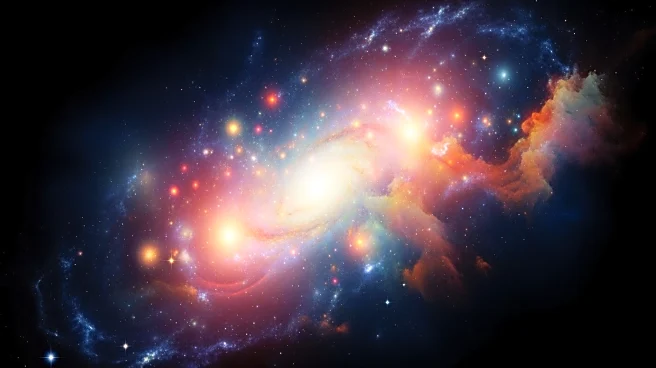What's Happening?
Recent studies by cosmologists, including Josh Frieman and Anowar Shajib, suggest that dark energy, traditionally thought to be a constant force driving the universe's expansion, may actually be dynamic.
This hypothesis challenges the long-standing cosmological constant model introduced by Einstein. The research, published in Physical Review D, analyzed data from various cosmological surveys, indicating that a time-varying model of dark energy better fits current observations. The study proposes that dark energy's density has decreased over the past several billion years, suggesting the presence of a new, ultra-light particle, possibly an axion, influencing this change.
Why It's Important?
The potential discovery of evolving dark energy could significantly alter our understanding of the universe's expansion and its ultimate fate. If dark energy is not constant, it may affect predictions about the universe's future, such as whether it will continue expanding indefinitely or eventually collapse. This research could lead to new insights into fundamental physics, challenging existing theories and prompting the development of new models. The findings also highlight the need for advanced observational tools and experiments to further explore these possibilities, potentially impacting future scientific and technological advancements.
What's Next?
Future surveys, such as those conducted by the Dark Energy Spectroscopic Instrument (DESI) and the Vera Rubin Observatory, are expected to provide more data to test these evolving dark energy models. These observations could confirm or refute the presence of a dynamic dark energy force, offering a clearer understanding of the universe's expansion history. The scientific community anticipates that these findings will either validate the new models or reinforce the traditional cosmological constant theory, shaping the direction of future cosmological research.









